Are you building or upgrading your gaming PC and want to know, “Is liquid cooling necessary for gaming, or is it just an extra cost to your build?“
Well, it’s a common question among PC gamers who want to balance performance with budget.
Liquid cooling has become a popular PC component among gamers, streamers, and PC enthusiasts; however, it’s not that necessary.
After all, the CPU has its own damage control feature. Whenever the CPU exceeds the recommended temperature, it controls the processes and may even shut down the computer for a short period.
But if you’ve overclocked your CPU, then a liquid cooling system is great if you don’t want to let your PC shut down under heavy loads.
And actually, that’s the reason why gamers, streamers, and PC enthusiasts promote liquid cooling systems for PC.
In this guide, let’s talk about what liquid cooling actually does, its comparison to air cooling, and whether it makes any noticeable difference for gaming performance.
And lastly, you’ll know exactly whether liquid cooling is worth your money as a gamer or if an air cooler is more than enough for your gaming needs.
Read also,
Let’s dive in.
What is Liquid Cooling in Gaming PC?
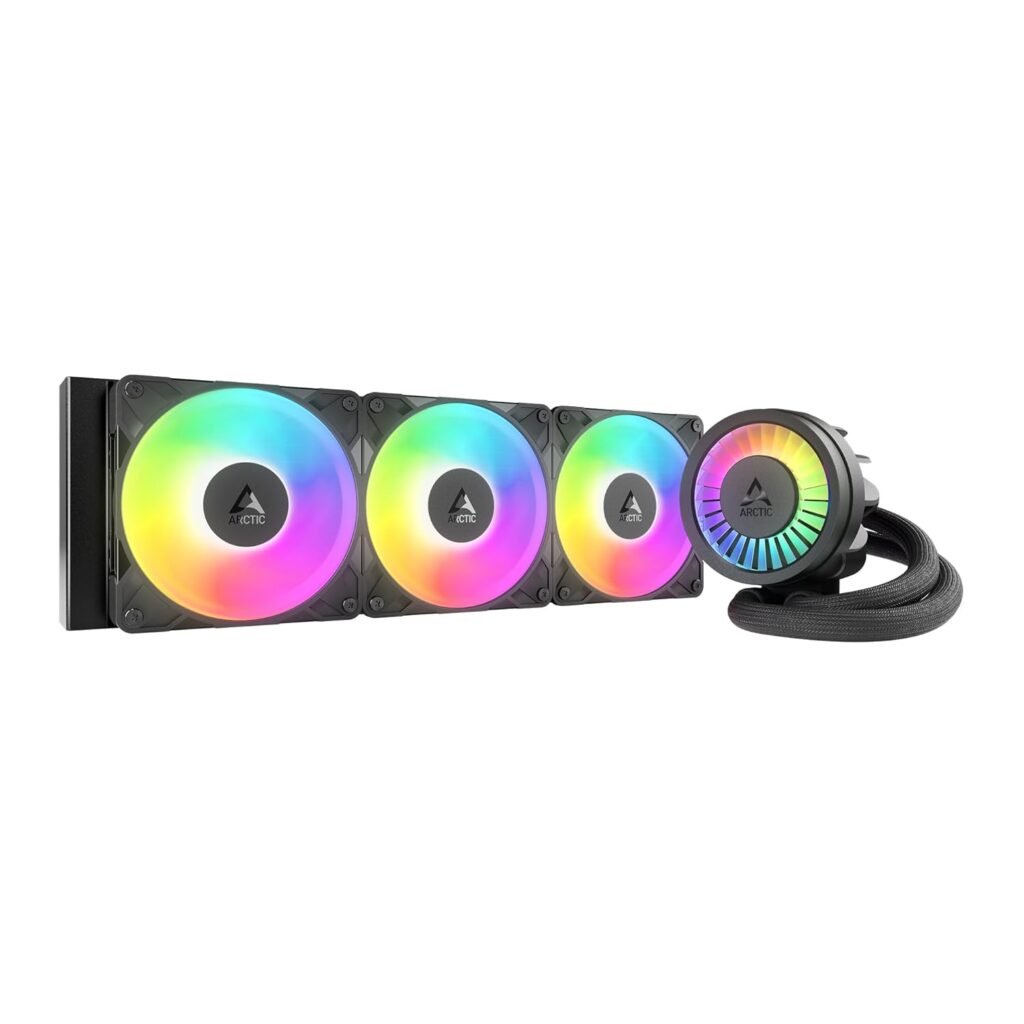
To be honest, I have also used a liquid cooling system in my PC.
Wondering what exactly liquid cooling?
It is also known as water cooling, and is a method of reducing heat in a computer system using a liquid-based thermal transfer system, just like a car’s radiator system.
They are different from traditional air coolers.
Liquid cooling uses water (or a special coolant) to absorb and dissipate heat away from high-performance components, like the CPU and GPU.
Here’s its workflow:
- Coolant flows through tubes and a water block, which is attached to the CPU or GPU.
- The heat emitted from the components is absorbed by the coolant and transferred to a radiator (like a car radiator), where fans blow cool air to release the heat.
- Now the cooled liquid circulates back to the water block.
- The cycle continues.
Because of its ability to maintain lower temperatures than traditional cooling systems, it’s popular among gamers and PC enthusiasts.
As I’ve told you, during heavy gaming or overclocking, this system is very effective.
Importance of Cooling in Gaming PCs
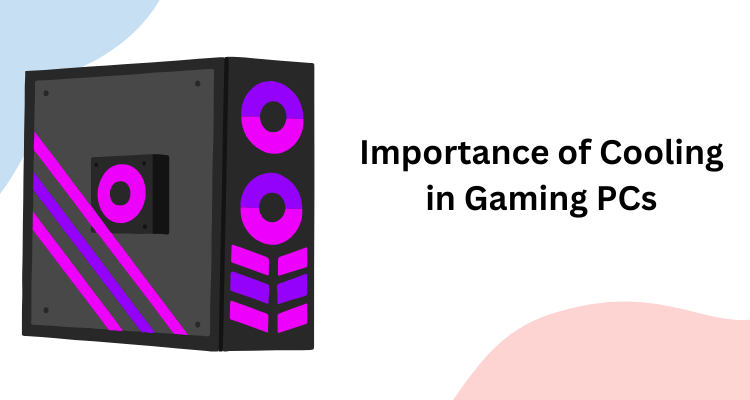
The components of a PC are electronic parts that emit heat. If you don’t keep them cool, they can be damaged.
Especially, the CPU, which does all the calculations within the computer, is the hottest part of the computer.
Without a cooler, the temperature of a CPU can increase up to 300 degrees Celsius. This temperature is enough to melt the CPU.
That’s why we use a cooling system in the. computer.
Cooling system:
- Prevents Overheating
- Maintains Consistent Frame Rates
- Protects Hardware
- Enables Overclocking
- Improves System Stability
Without a cooler, no matter how powerful your system is, it will struggle to perform at its best.
Air Cooling Vs Liquid Cooling
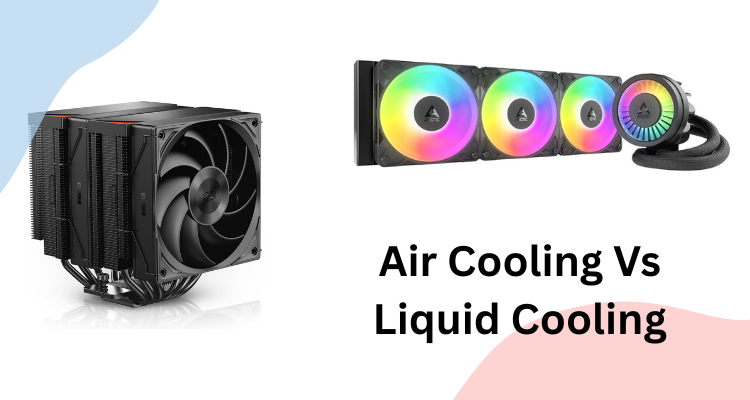
| Feature | Air Cooling | Liquid Cooling |
|---|---|---|
| Cooling Performance | Good for most gaming needs | Superior for high-performance or overclocked PCs |
| Noise Level | Can be louder due to fan speeds | Generally quieter, especially under heavy load |
| Installation | Easier to install; beginner-friendly | More complex installation; may need experience |
| Maintenance | Low maintenance | May require occasional checks for leaks and refills |
| Cost | Budget-friendly | Basic design (though some RGB models are available) |
| Aesthetic Appeal | Basic design (though some RGB models available) | Sleek and customizable with RGB options |
| Space Requirements | Air coolers are generally bulky | Can be reliable, but has more points of failure |
| Durability | Long-lasting and durable | Not as long-lasting as air coolers |
| Suitability | Ideal for budget and mid-range builds | Best for high-end or overclocked setups |
When Should You Need Liquid Cooling in Gaming?
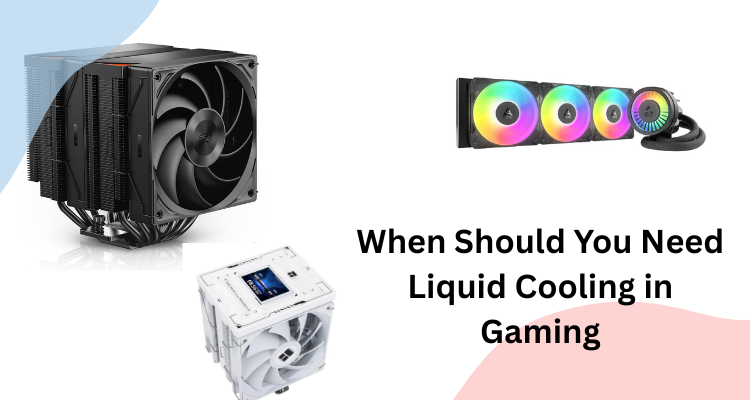
Liquid cooling is not mandatory for you, but in certain situations, it increases the performance of your PC.
If you’re just a hobby gamer who plays at 1080p with a mid-range GPU, then traditional air cooling is enough for your needs.
But if you’re serious about gaming and want to become a pro gamer, you should go for liquid cooling for smooth performance.
Here’s when you’ll need liquid cooling, in my experience:
- You’re overclocking your CPU or GPU
- You run a high-end gaming rig
- You play games for long sessions
- Your case has limited airflow
- You want a silent gaming experience
- You use your PC for more than gaming
If all or any of the above conditions are met, then you may need a liquid cooling system in your PC.
In Short:
Go for liquid cooling if you’re building a high-performance gaming PC and overclocking the CPU, and also want a silent setup.
Otherwise, a good air cooler may be enough for most budgets and mid-tier gaming builds.
Pros and Cons of Liquid Cooling
| Pros | Cons |
|---|---|
| Liquid cooling provides a superior cooling experience by dissipating heat under heavy load. | AIO or custom liquid coolers are way more expensive than air coolers. |
| AIOs can fit easily within a small space compared to air coolers. | Although it’s rare, if liquid leaks, the AIO unit can damage components. |
| Keeps temperatures lower when you overclock your CPU/GPU. | Unlike air cooling systems, liquid coolers are harder to install and maintain. |
| Looks sleek and modern, especially when you choose a liquid cooler with RGB lighting. | A liquid cooler needs regular checks and fluid replacement over time. |
| AIOs can fit easily within a small space compared to the air coolers. | AIOs can fit easily within a small space compared to air coolers. |
Liquid Cooling Alternatives for Gamers
There are not many alternatives available for liquid coolers other than air coolers in the market.
However, we’ll see the working alternatives here.
Air Cooling
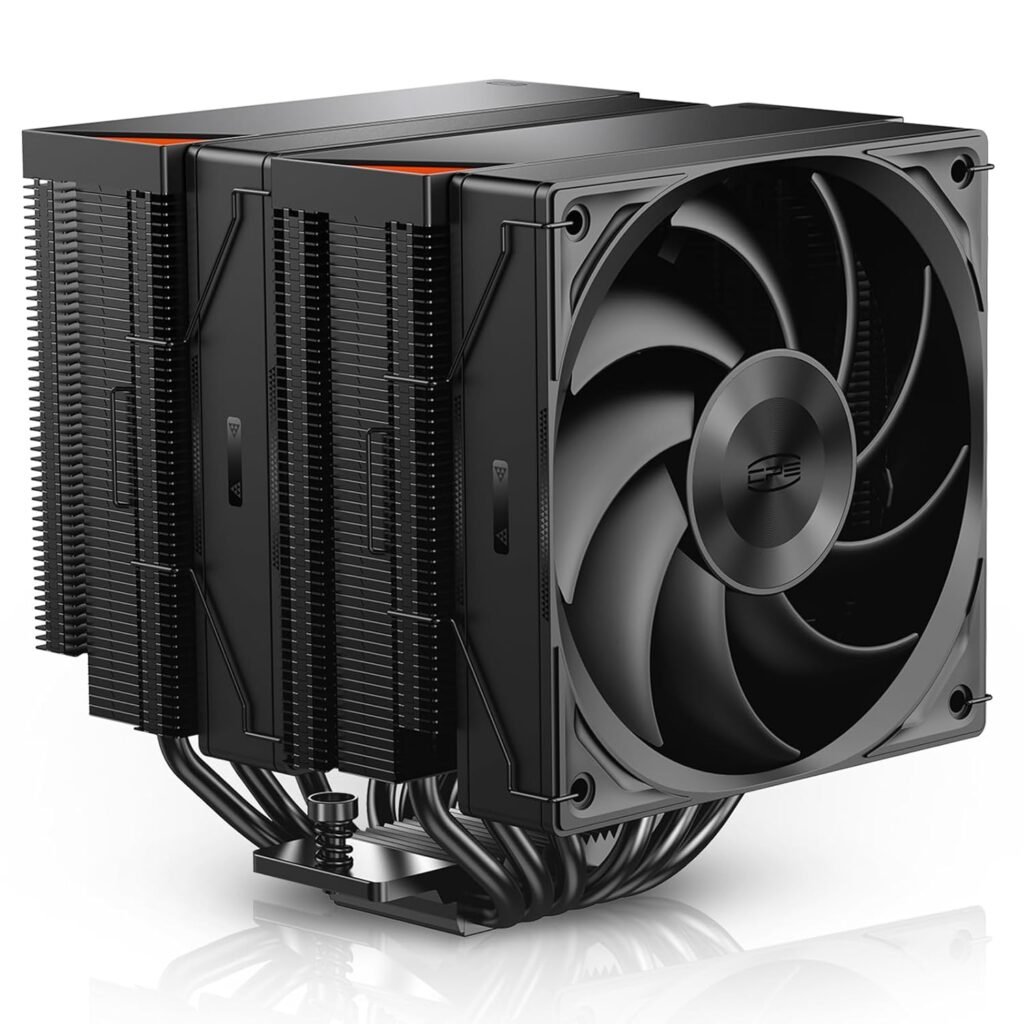
As I have told you above it is the most common and beginner-friendly alternative to liquid cooling.
Air cooling uses a combination of heatsinks and fans to dissipate heat from your CPU and other components of the computer.
Some popular air coolers like the Cooler Master Hyper 212 or Noctua NH-U12S are great to use in a gaming PC.
Case Fans with Optimized Airflow
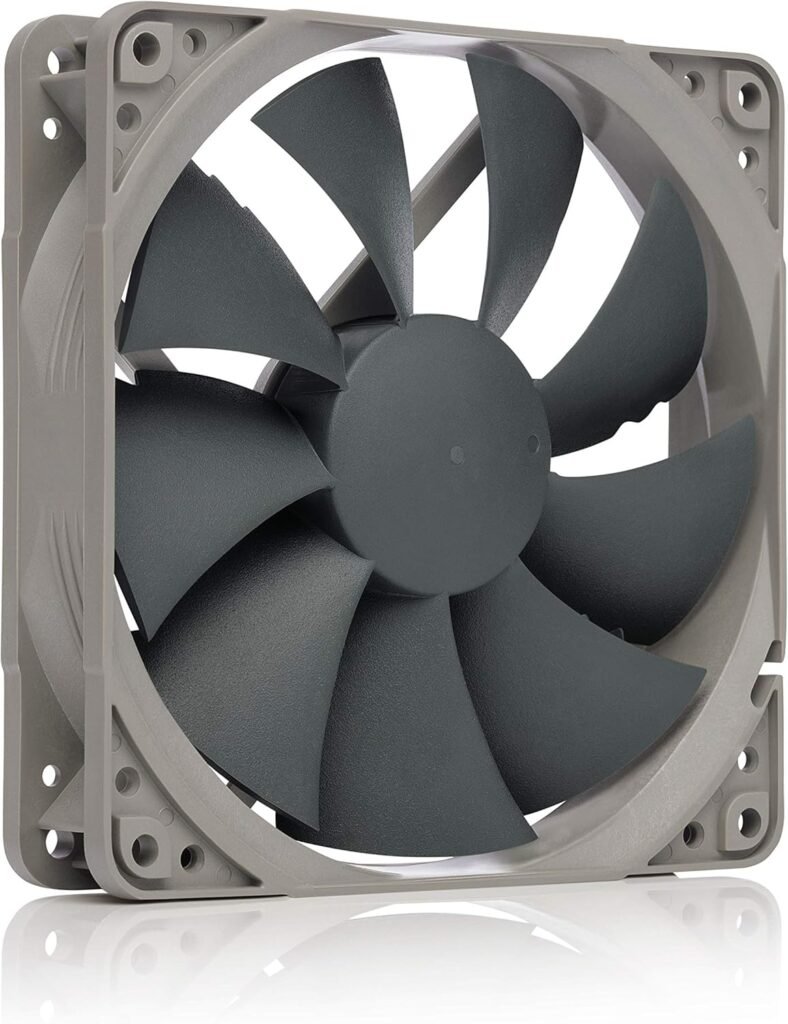
The other option is the strategic placement of case fans inside the case and optimize the airflow.
This arrangement can greatly improve the overall system temperature.
Here’s the breakdown:
- Front intake fans bring in cool air
- Top/rear exhaust fans to remove hot air
This simple setup can reduce internal temperatures and extend the lifespan of your components.
Hybrid Cooling (Air + Liquid)
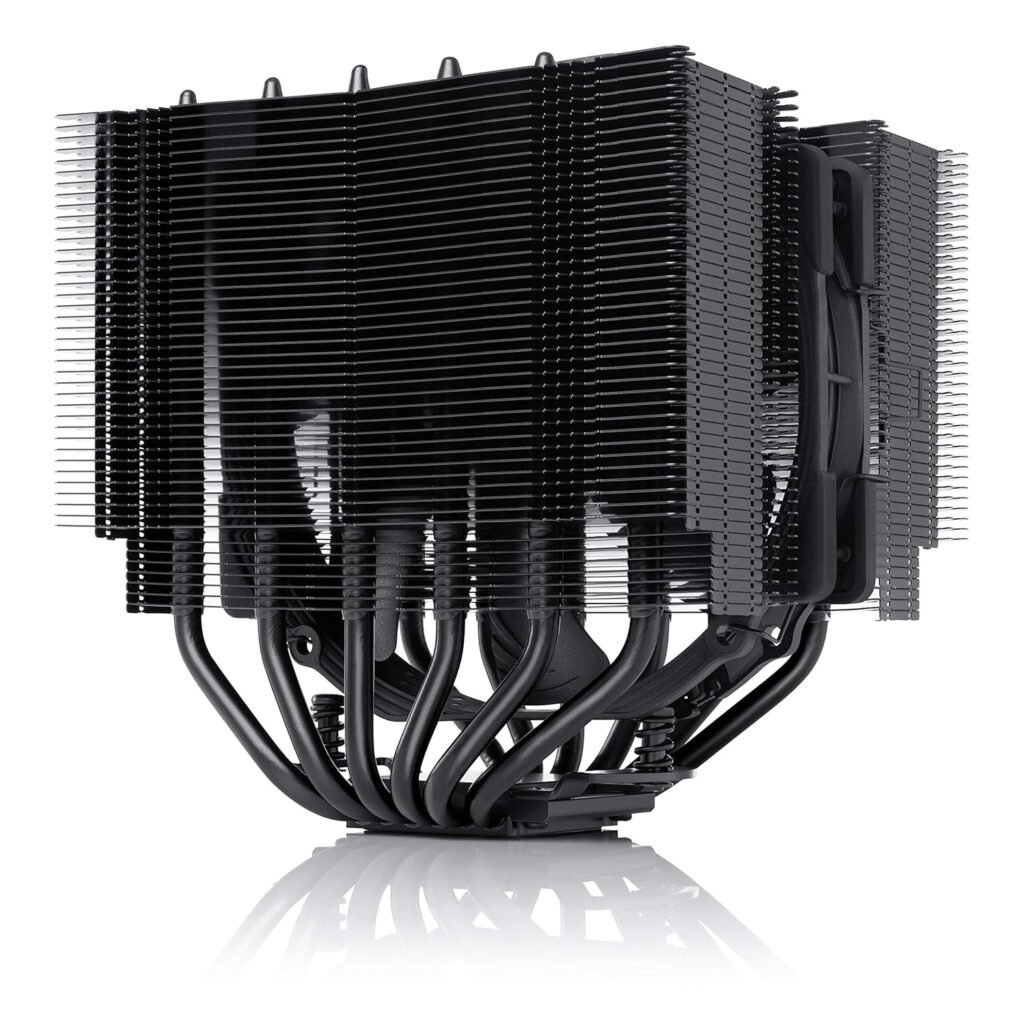
It is the best cooling method for PC gamers.
Some gamers use hybrid GPU coolers or semi-liquid AIOs that mix air and liquid methods.
For example, some high-end GPUs like CORSAIR iCUE Link XG3 RGB Hybrid GPU come with hybrid coolers that use a small liquid loop combined with air fans.
These are ideal for gamers who want the benefits of liquid cooling but aren’t ready to use a custom loop.
Open-Air CPU Case
Last but not least, open-air cooling is one of the great solutions.
If look and dust control aren’t your priority, open the case from both sides and let the air flow from all sides.
By unrestricting airflow, components remain cool even without powerful fans or liquid cooling.
Costing of Liquid Cooling
As I have already mentioned, liquid cooling setups are way more costly than air cooling systems.
Generally, liquid cooling setups can range from $50-$500.
There are two types of liquid cooling systems available in the market.
AIO and custom cooling loops.
Let me show you all the variants of these cooling systems with the price range.
AIO (All-in-One) Liquid Coolers
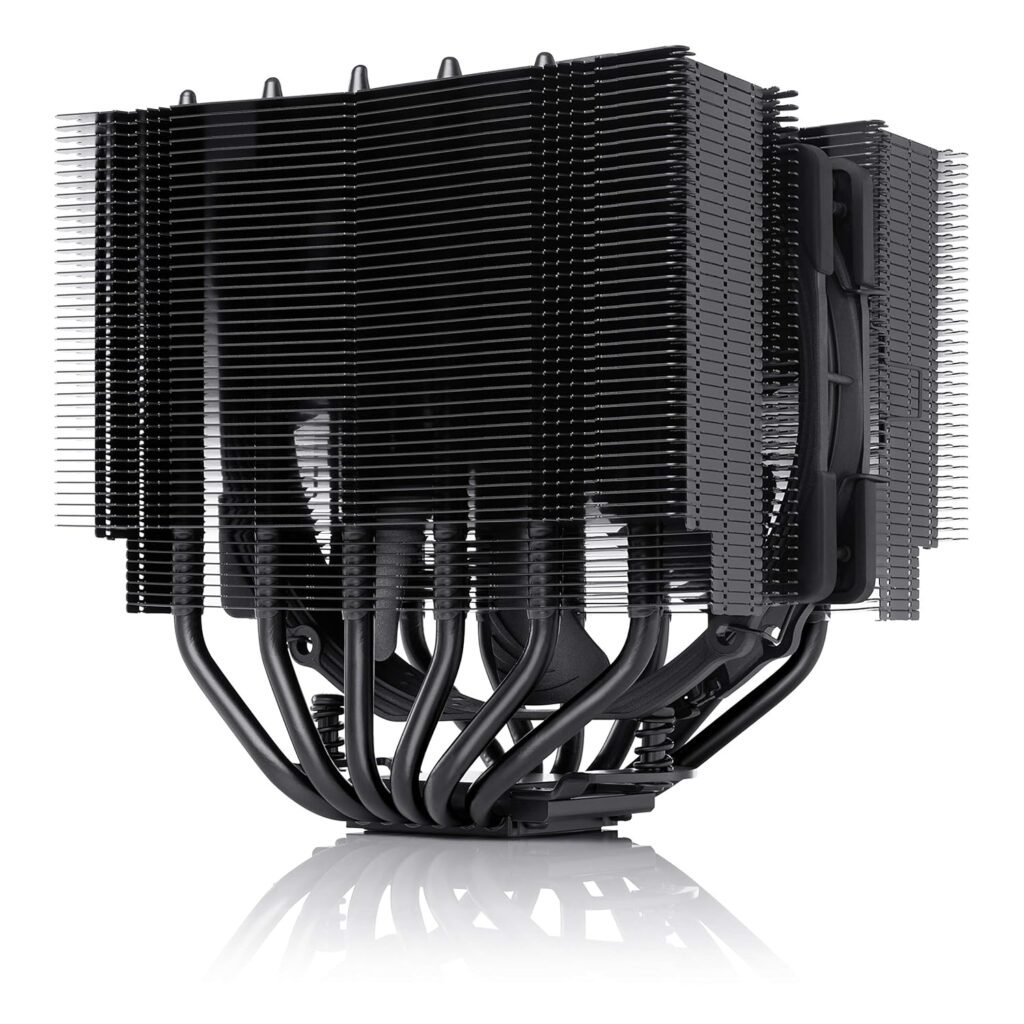
These are pre-assembled, sealed liquid cooling systems that are easy to install and maintain.
- 120mm AIO: $50 – $75. Ideal for compact builds and basic cooling needs.
- 240mm to 280mm AIO: $75 – $120. Suitable for mid-range to high-performance gaming PCs.
- 360mm AIO: $120 – $220. Provide excellent cooling performance, especially for overclocked CPUs and GPUs.
Custom Loop Liquid Cooling

Custom cooling loops are high-performance and visually stunning. However, they are quite expensive and complex to set up.
- CPU Block: $50 – $85
- Radiator (240mm–360mm): $40 – $130
- Pump + Reservoir Combo: $70 – $150
- Tubing and Fittings: $25 – $60
- Coolant Liquid: $10 – $20
Total Custom Loop Cost (approx): $220 – $500+
Maintenance Costs
- AIO coolers are generally low maintenance, but may require replacement every 3–5 years.
- Custom loops require regular maintenance.
If you’re a casual gamer or building a budget PC, then a good air cooler or entry-level AIO is usually enough. But if you’re high-end PC or overclocking your CPU/GPU, liquid cooling may be good for better performance and lower noise.
Conclusion
So, the question is, is liquid cooling necessary for gaming?
Not always.
In my whole life, I’ve used traditional air coolers in my systems. In the last few years, I have been using liquid coolers due to intensive work on my PC, like editing and high-end gaming.
So, I can tell you, it matters.
My system runs smoothly when I am editing on my timeline (even in high resolution), exporting my videos, and playing high-end games like Call of Duty, etc.
But for casual and mid-range gamers, a high-quality air cooler offers enough thermal performance at a lower cost and with less maintenance.
However, if you’re running high-end hardware like me, overclocking your CPU or GPU, and you want a quieter and cleaner-looking setup, liquid cooling is a great investment.
Now it’s your time to choose. Let me know in the comments about your choice and experience with liquid and air coolers for PC.
FAQs
Is liquid cooling better than air cooling for gaming?
Definitely, liquid cooling provides better thermal performance and quieter operation compared to air cooling.
Do I need liquid cooling if I don’t overclock?
It’s not mandatory, but suggested to use liquid cooling for intensive CPU tasks.
Is liquid cooling safe for beginners?
If you use AIO (All in One Cooling), then it’s beginner-friendly; however, Custom loop coolers require more experience to install and maintain.
Is liquid cooling more expensive?
Yes, liquid cooling is expensive compared to traditional cooling methods.
Can liquid cooling leak?
Modern AIO coolers are very safe, but custom loop coolers can face a leakage problem.
Will liquid cooling improve FPS?
Yes, but indirectly. Liquid cooling helps maintain lower temperatures that allow your CPU or GPU to perform effectively under load, but it won’t directly increase FPS.
Related,
- Gaming PC Build Checklist for Beginners
- How Much Ram Do You Need for Gaming in 2025? (Beginners’s Guide)
Gautam Roy is the founder of PCBuildHQ.Com and StartHomeStudio.Com. He has over 20 years of experience in web development, creative technology, system architecture, audio recording, music production and video editing.

